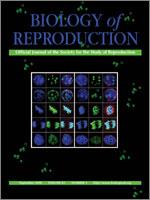Homeostasis of many tissues is maintained by self-renewal and differentiation of stem cells. Spermatogenesis is one such system relying on the activity of spermatogonial stem cells (SSCs). Several key regulators of SSC self-renewal have been identified, yet knowledge of molecules that control SSC differentiation is undefined. In this study, we found that transient impairment of STAT3 signaling enhances SSC self-renewal in vitro without affecting general spermatogonial proliferation, indicating an alteration in the balance of SSC fate decisions that inhibited differentiation. Confirming this observation, short hairpin RNA-mediated stable reduction of STAT3 expression in cultured SSCs abolished their ability to differentiate beyond the undifferentiated spermatogonial stage following transplantation into recipient testes. Collectively, these results demonstrate that STAT3 promotes the differentiation of SSCs. In contrast, STAT3 plays a central role in maintaining self-renewal of mouse embryonic stem cells, and STAT signaling is essential for self-renewal of male germline stem cells in Drosophila.
How to translate text using browser tools
26 May 2010
Regulation of Mouse Spermatogonial Stem Cell Differentiation by STAT3 Signaling
Jon M. Oatley,
Amy V. Kaucher,
Mary R. Avarbock,
Ralph L. Brinster
ACCESS THE FULL ARTICLE

Biology of Reproduction
Vol. 83 • No. 3
September 2010
Vol. 83 • No. 3
September 2010
differentiation
spermatogonial stem cell
STAT3





